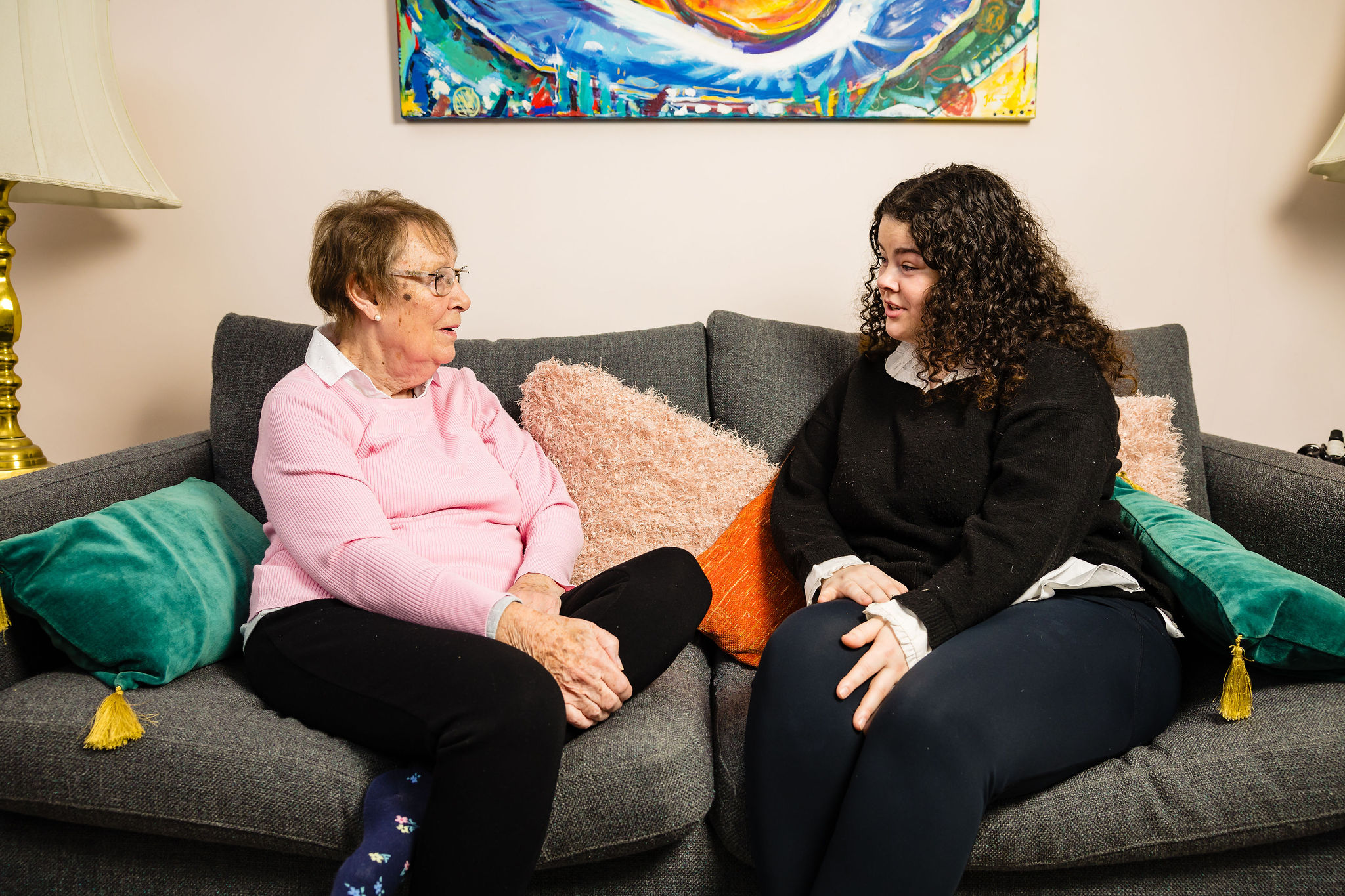Alison Raynor is the service lead for the Supporting Hands service offered by Rennie Grove Peace Hospice Care. Here she tells Charity Times about the challenges she has faced in recruiting suitable volunteers for the befriending service, and how she has worked with colleagues across the organisation to overcome them.
_______________________________________________________________________
Since 2017 our Supporting Hands service has been offering invaluable support to patients living with a life-limiting illness and their families.
The service is delivered entirely by trained volunteers who spend an hour or two each week with a carefully matched patient offering company, practical support or respite to their carer.
In doing so, volunteers meet some of the emotional and practical needs that patients and carers have, freeing up our nursing staff to focus on clinical needs.
Since the merger of Rennie Grove Hospice Care and Peace Hospice Care which formed Rennie Grove Peace Hospice Care, the geographical area - and number of patients - that the service supports has increased considerably.
It became apparent that there was a shortage of volunteers compared to patient referrals and the service was at risk of being unable to meet the patient demand.
Alison joined forces with the charity’s volunteering team to identify and tackle some of the barriers to volunteering with the service.
The feedback from existing volunteers and those who had shown an interest in the role told me there were a number of barriers. Some people had logistical challenges such as not being able to volunteer between the hours of 9am – 5pm. We only offer the service during office hours when volunteers have access to the team in the office, should they face any challenges while volunteering. So for many working people this can be a challenge.
Potential volunteers also fed back that working alone, although well supported by the team and fellow volunteers, was not what they wanted from a volunteering role. And others found the prospect of dealing with patients nearing the end of life to be daunting.
The team took stock of this feedback and reviewed it in light of the make-up of the existing volunteers. They found that many either had a background in nursing or caring professions or had cared for a loved one who had been supported by the charity. Although no experience is necessary for the role, this gave the team something to focus on.
We decided to approach the next of kin of former patients directly, to share information about the role and to make clear that we were recruiting new volunteers. We only contacted next of kin whose bereavement had been at least 15 months ago.
The result of this was very positive and 10 people got in touch to find out more about the role.
We then worked with the marketing team to spread the word about the service to the local population more generally. We used paid Facebook posts to target people who have characteristics similar to our existing volunteers and are located in our area. This approach was successful in generating a number of volunteer enquiries.
Articles in local newspapers and social media posts to existing supporters raised awareness of the service among people who already know the charity but may not have been aware of the Supporting Hands service specifically.
We knew that local current or retired healthcare professionals were a key group to target with information about the service. We used LinkedIn and our own healthcare professionals’ newsletter to drive traffic to the service’s webpage and generate interest in the role among a group that we know is well represented in our existing volunteer workforce.
As a result of the activity, Alison has successfully recruited a total of 15 volunteers who have now been trained with 8 further volunteers due to complete their training in the next few weeks.
The Supporting Hands service is so fundamental to the care we offer to local patients that it really warranted input from across the organisation to ensure its success. By coming together to identify the challenges and barriers, then working with experts across the organisation to overcome them, we’ve been able to recruit a whole new cohort of volunteers to secure the future of the service.
You can find out more about Rennie Grove Peace Hospice Care and their volunteers programme here: Work for Rennie Grove Peace - Rennie Grove Peace Hospice Care
Latest News
-
From comics to crockery: the best places for charity shop sales revealed
-
Three arrests made amid ‘large-scale theft' of charity clothes donations
-
Global majority voluntary sector leadership programme launches
-
Agency overhauls community charity’s brand for free
-
Mothers and babies charity to close ‘due to ongoing funding struggles’
-
FareShare interim boss takes role on a permanent basis
Charity Times video Q&A: In conversation with Hilda Hayo, CEO of Dementia UK
Charity Times editor, Lauren Weymouth, is joined by Dementia UK CEO, Hilda Hayo to discuss why the charity receives such high workplace satisfaction results, what a positive working culture looks like and the importance of lived experience among staff. The pair talk about challenges facing the charity, the impact felt by the pandemic and how it's striving to overcome obstacles and continue to be a highly impactful organisation for anybody affected by dementia.
Charity Times Awards 2023
Mitigating risk and reducing claims

The cost-of-living crisis is impacting charities in a number of ways, including the risks they take. Endsleigh Insurance’s* senior risk management consultant Scott Crichton joins Charity Times to discuss the ramifications of prioritising certain types of risk over others, the financial implications risk can have if not managed properly, and tips for charities to help manage those risks.
* Coming soon… Howden, the new name for Endsleigh.
* Coming soon… Howden, the new name for Endsleigh.
Better Society

© 2021 Perspective Publishing Privacy & Cookies











Recent Stories